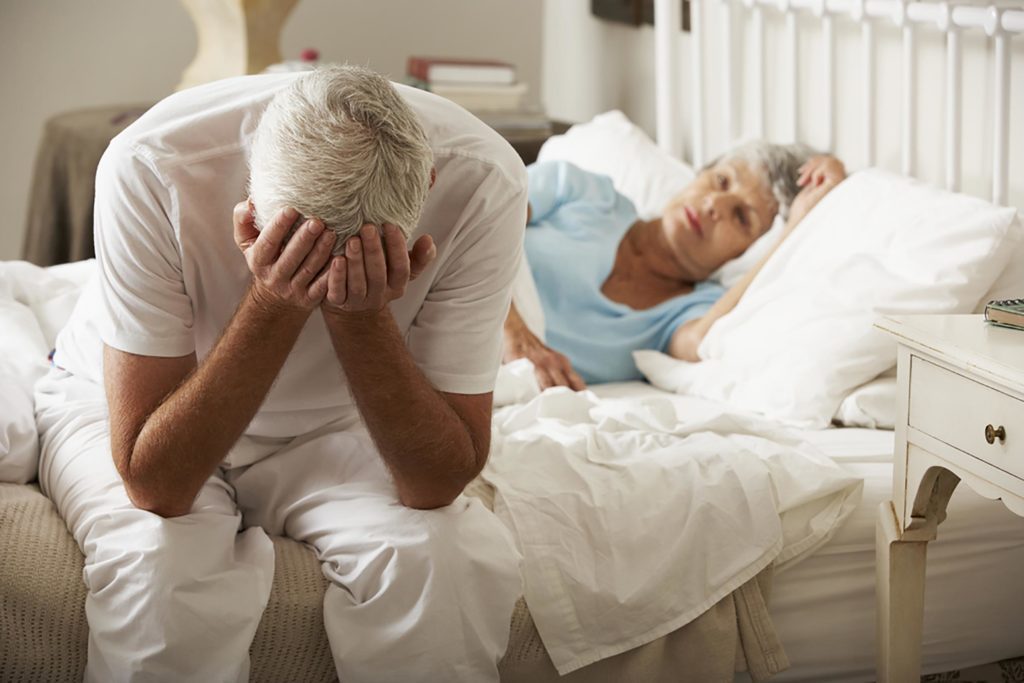Better Sex After 50 For older people having sex, challenges arise for both men and women related to medical problems, surgeries, and body changes ( courtecy;- medicineNet.com & webMD& READER'S DIGEST )
Better Sex After 50
For older people having sex, challenges arise for both men and women related to medical problems, surgeries, and body changes ( courtecy;- medicineNet.com
7 Tips for Better Sex After 50
IN THIS ARTICLE
1. Get regular exercise
2. Keep it interesting; try something new
3. Think Beyond Intercourse
4. Get Comfortable
5. Troubleshoot Your Medications
6. Go Slowly After Surgery or Illness
7. Talk Things Out
Other Things to Keep in Mind
As you age, some conditions or medicines may put a damper on your sex drive and performance. But don’t think that if you’re in the over-50 crowd, you have to settle for a less-than-fulfilling sex life.
You can still enjoy sex -- you just may have to put a little more thought and planning into it than you did when you were younger.
Here are 7 things you can do to keep sex exciting and fulfilling for you and your partner:
1. Get regular exercise
You may think of sex as leisurely, but you can work up quite a sweat during lovemaking. Here are a few reasons why getting fit can help you get it on:
It strengthens your muscles. Nothing can kill a mood fast than hurting your back or pulling a muscle. Check into the best strength-training exercises for you.
It improves your mood. Exercise can release chemicals in your brain that make you feel better and more at ease. When was the last time you felt blue and also interested in sex?
CONTINUE READING BELOW
YOU MIGHT LIKE
WEBMD
See What Could Be Causing You to Sweat So Much
Take this assessment to find out if there may be a medical reason for your excessive sweating and what you can do about it.
WEBMD
Pre-Pregnancy To-Dos
Are you ready for baby?
WEBMD
Dyskinesia in Parkinson's Disease
What causes these jerky, uncontrollable movements?
It helps you look better. Regular exercise can keep your body looking its best and that can help your confidence and boost your sex life.
For women, regular physical activity might help with arousal.
Women may also benefit from what’s called Kegel exercises. They can make your pelvic floor muscles stronger. You can identify those muscles the next time you pee by stopping in midstream. You can practice tightening and relaxing those muscles several times a day.
Men who exercise are less likely to have problems with erectile dysfunction, or ED, than men who are inactive. If you enjoy long-distance bicycling, make sure you have a soft, comfortable seat and a bike that fits you properly. This can help you avoid a potential ED problem.
Be sure to talk to your doctor before you begin any new exercise program.
2. Keep it interesting; try something new
When you’ve been with the same partner for a long time, you may want to come up with ideas to add a little variety to your sex life.
The answer might be something as simple as changing the time of day you have sex. If you’re too sleepy at night, maybe sex in the morning is right for both of you.
Some other ideas to keep things interesting:
Try different sexual positions
Set the stage and create a romantic atmosphere; a little planning can go a long way
Take it out of the bedroom and find a new place to make love
Shower or take a bath with your lover
Indulge in professional massages that will leave you both relaxed
3. Think Beyond Intercourse
If you or your partner can’t do this anymore, there are other options for you to enjoy closeness and pleasure.
The simple but intimate acts of kissing and touching should not be overlooked. You and your partner may also consider:
Giving each other sensual massages
Oral sex
Trying out sex toys such as vibrators
4. Get Comfortable
If arthritis or ongoing pain makes sex less enjoyable, find ways to feel better. Try a new position that’s easier on your body or use pillows for support.
If you have back pain, for instance, have sex side-by-side instead of in the missionary position, which can make back pain worse.
Plan sex for a time of day when you feel your best. Ahead of time, take a warm bath or some pain medicine if you need it so that you'll be more relaxed.
5. Troubleshoot Your Medications
The side effects of some medications can cause sexual problems. Some that can do this include:
antidepressants
antihistamines
blood pressure medicines
cholesterol-lowering drugs
ulcer medications
If you have reason to suspect that any of your meds are dampening your sex life, talk with your doctor.
6. Go Slowly After Surgery or Illness
Before you reconnect with your partner, give your body time to recover. Once you have your doctor's OK, start slowly with sensual touch and kissing.
Speak honestly with your partner about how you're feeling, both physically and emotionally.
7. Talk Things Out
Talk openly with your partner if you have any concerns about your sex life, whether it’s about your changing desires or how you feel about your body.
If you’re both unhappy with where your sex life is and haven’t been able to work it out, you might want to talk with a sex therapist. Your doctor should be able to give you a referral.
And remember, some older couples find their sex lives are actually better as they’ve aged. You may find you have more time and privacy, plus you can have more intimacy with a long-time partner.
Other Things to Keep in Mind
STDs can still happen: You might think of sexually transmitted diseases, or STDs, as a younger person’s problem. But age is zero protection from HIV, syphilis, genital herpes, and other STDs.
You need to take the same precautions about unprotected sex as anyone else if you have more than one partner.
When to see a doctor: Our bodies do go through changes as we age that might affect our sex lives.
After menopause, some women might have vaginal dryness. It can make intercourse painful. You may need to talk with your partner about more foreplay or try a silicone-based lubricant. If it’s still a problem, talk to your doctor.
Some men might find they need more stimulation to get and keep an erection. This kind of change is normal. Try to relax and enjoy your partner’s touch. But if you have an ongoing ED problem, it might be time to visit a doctor.
People of either sex might have body image problems, recalling how they looked in their younger days. These thoughts shouldn’t keep you from enjoying sex. If they do, perhaps a sex therapist can help.
WebMD Medical Reference Reviewed by Carol DerSarkissian on November 07, 2016
Sources © 2016 WebMD,
Sex and Aging: Easy Ways to Solve Common Problems
By Janie McQueen
Worried that your sex life will take a hit as you age -- or worse, that it might go away forever? Don’t be.
Doctors say the secrets to a happy love life are simple. Keep an open mind, and find clever ways to adapt to the challenges, like these, that often come with getting older:
You Have Erectile Dysfunction (ED): It’s one of the most common problems, says Lynn McNicoll, MD, associate professor at Warren Alpert Medical School at Brown University. It happens when there isn’t enough blood flow for your penis to get hard. Or when the veins that normally drain blood from it can’t close up to keep the blood in -- and keep it erect.
CONTINUE READING BELOW
YOU MIGHT LIKE
WEBMD
See What Could Be Causing You to Sweat So Much
Take this assessment to find out if there may be a medical reason for your excessive sweating and what you can do about it.
WEBMD
Pre-Pregnancy To-Dos
Are you ready for baby?
WEBMD
Assessment: Sweating a Lot?
Take this assessment to find out if there may be a medical reason for your excessive sweating and what you can do about it.
ED can happen to any man. But if you have health issues related to aging, like heart disease, a stroke, or diabetes, you’re more likely to have it.
At least four meds on the market right now may help. But only if you have some ability to get an erection, McNicoll says. If you can’t, your doctor will look to other options like a pump or implant to help create an erection. It’s rare, but some men have a surgery to boost blood flow to the penis.
Your Meds Drain Your Drive: Drugs like antidepressants, high blood pressure meds, and anticoagulants can put a damper on your sex life. Don’t change or stop taking meds on your own, though. Your first step is to ask your doctor if what you take could be to blame. She might switch out the one that’s causing the problem.
Your Health Issues Get in the Way: Other things can make sex tricky as you age. Vision and hearing -- which often carry sexual cues -- can fade. Chronic diseases like arthritis and Parkinson’s can tire you out and limit movement or make sex painful. You can try different positions, head to the bedroom at the time of day your joints bother you the least, and take a warm bath or shower first to loosen up your body.
Major surgery will bring things to a halt, at least for a while. Wait until your doctor tells you it’s OK to have sex again -- and you feel up to it -- before you head off to bed.
Menopause -- which usually starts between 45 and 55 -- can cause vaginal dryness and thinning. That make sex painful. Medications and over-the-counter lubricants and even lubricated condoms often help -- and so can more sex. Desire can plummet along with your hormone levels. Talk to your doctor about the medications you take. They could be to blame.
“Incontinence that older people are likely to have also is embarrassing,” McNicoll says. “One strategy is to go [to the bathroom] before you have sex.”
If you’re a woman who has trouble having an orgasm, your doctor might prescribe ED drugs. But that’s usually a last resort. She’ll probably start by adjusting any meds that make it hard for you to get in the mood.
Your Body Has Changed: As you age, it’s normal to become more insecure about how you look and appear to your partner. You might try having sex in the dark to make you feel less self-conscious about your body.
You’ve Lost Your Partner: The death of a spouse or partner instantly halts your sex life. But over time, you might become interested in dating or spending time with a special someone again.
It’s good to stay open minded about finding potential partners. It’s a little easier for men, McNicoll says. There are fewer single, widowed, or divorced men, out there. “I encourage my patients to use their contacts” to meet new people, she says. You might also try the Internet. Even nursing homes are becoming open to the times, she says. Some offer privacy for dating and sex.
You’re Worried How Others Will React: This isn’t a new problem. For years grandparents have had to listen to the younger set say “eeeew” when the topic comes up. And as Baby Boomers, age, we’re seeing the first large group of openly LGBT -- lesbian, gay, bisexual, and transgender -- people get older. New issues are coming to light, says McNicoll, who’s seen older people go back into the closet over worries of backlash tied to their sexual identity. The good news is that a growing number of groups are there to help. Check out the National Resource Center on LGBT Aging, for starters.
Your Definition of Sex Is Narrow: Many people just don’t feel the need for lovemaking as they age. But you can still feel sexy and enjoy intimacy in other ways:
Hold hands, caress, and massage each other.
Explore new non-sexual activities, like cooking, playing games, or travel.
You Haven’t Thought About the Perks: Growing older can bring some plusses to your intimate life:
A slower lifestyle lets you make your partner a higher priority.
You have more free time to hash out changes both of you are experiencing and work on them.
You can spend more time touching, which can be helpful to get fully aroused.
When sex is no longer the goal, masturbation -- alone or with a partner - can become more satisfying.
You’re worried about safety. You might not think safe sex is an issue for older people. In fact, the numbers of senior citizens with HIV is on the rise. So are cases of STDs like chlamydia, herpes, and hepatitis B among seniors.
Even if you have the same partner, it’s important to know if they've had any other sexual partners. Always use a condom, McNicoll says.
WebMD Feature Reviewed by Melinda Ratini, DO, MS on July 28, 2016
Sources © 2016 WebMD,
A








মন্তব্যসমূহ
একটি মন্তব্য পোস্ট করুন